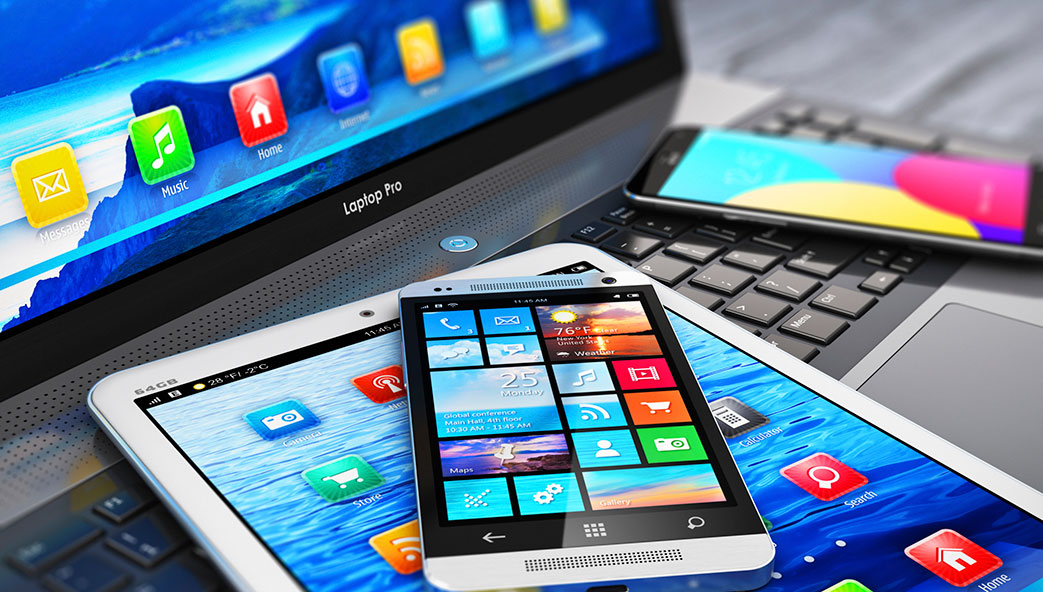
Tablets and toddlers: with a fast connection you get their attention… but how connected should they be?
We live in a technological age. It’s all around us. But how should parents and teachers approach introducing it to children?
It’s controversial but it’s a question most parents will ask. When should a child be introduced to a tablet, smartphone or computer?
As fast broadband becomes more accessible with the rollout of the nbn™ network around the country, the increased opportunities for using technology such as tablets for creative learning in schools is being developed and researched.
Fast internet needed to sustain interest
Dr Kristy Goodwin, a former teacher who runs Every Chance to Learn, is a mother and a children’s technology and brain researcher who wrote a NSW education department report titled Use of Tablet Technology in the Classroom.
She said fast internet speeds, such as those delivered over the nbn™ network, are important to sustain interest among children in preschool and kindergartens.
 Dr Kristy Goodwin tells parents not to be in a hurry to introduce screens to their children, as there’s no research to say it’s beneficial. Photo courtesy Every Chance to Learn.
Dr Kristy Goodwin tells parents not to be in a hurry to introduce screens to their children, as there’s no research to say it’s beneficial. Photo courtesy Every Chance to Learn.
“A lot of children think longer than two seconds is a long time for a page to load, so we have very quickly become accustomed to instant gratification, so speed of download is a very important consideration,” she said.
“We are also seeing something called the staccato effect, especially with younger children. If something doesn’t sustain them or interest them they’ll either open a new browser or hit the home button on the app and go to something else.
“I know in a lot of the schools I work in it is a huge source of frustration for educators and students alike. Because we’ve become so accustomed to this instant access it is definitely something they expect.”
Experts differ on technology use
| Technology advantages | Technology considerations |
|
|
Finding a balance
Interviewed on Radio National’s Drive program Dr Kate Highfield, of Macquarie University’s Institute of Early Childhood, said what was needed was balance.
“The technology genie is out of the bottle. We have to acknowledge that technology is here and we have to learn to use it well.”
She said that while it may be acceptable for parents to use tablets as “an occasional digital babysitter”, they didn’t want “a digital nanny who moves in”.
Dr Goodwin tells parents not to be in a hurry to introduce screens to their children, as there’s no research to say it’s beneficial.
She said different children showed different levels of interest in technology, so the age and amount of interaction varies.
“I’d say at least 12-18 months if they show an interest and it would be very minimal,” she said.
“Children today are leading over-scheduled childhoods where all activities are planned and there’s no unstructured and open-ended play. That combined with the saturation of digital media where everything is delivered to them doesn’t give them any downtime.
“Parents panic when they hear their kids say ‘I’m bored’, whereas in previous generations that was something you heard frequently and children had that opportunity to engage their imagination.
“The iPad cannot supercede the cardboard box experience.”
For more information:
- Healthy Kids, a joint initiative between the NSW Ministry of Health, NSW Department of Education, Office of Sport and the Heart Foundation (NSW)
- NSW Kids Switch off the Screen factsheet
- iPads, Digital Play and Pre-Schoolers
- ABC KIDS iview specifically for preschoolers
- Dr Larry Rosen research
- Zero to Three
Check your address to see when you and your children could be connecting to the nbn™ network.
“A lot of children think longer than two seconds is a long time for a page to load, so we have very quickly become accustomed to instant gratification, so speed of download is a very important consideration,” she said.
“We are also seeing something called the staccato effect, especially with younger children. If something doesn’t sustain them or interest them they’ll either open a new browser or hit the home button on the app and go to something else.
“I know in a lot of the schools I work in it is a huge source of frustration for educators and students alike. Because we’ve become so accustomed to this instant access it is definitely something they expect.”
